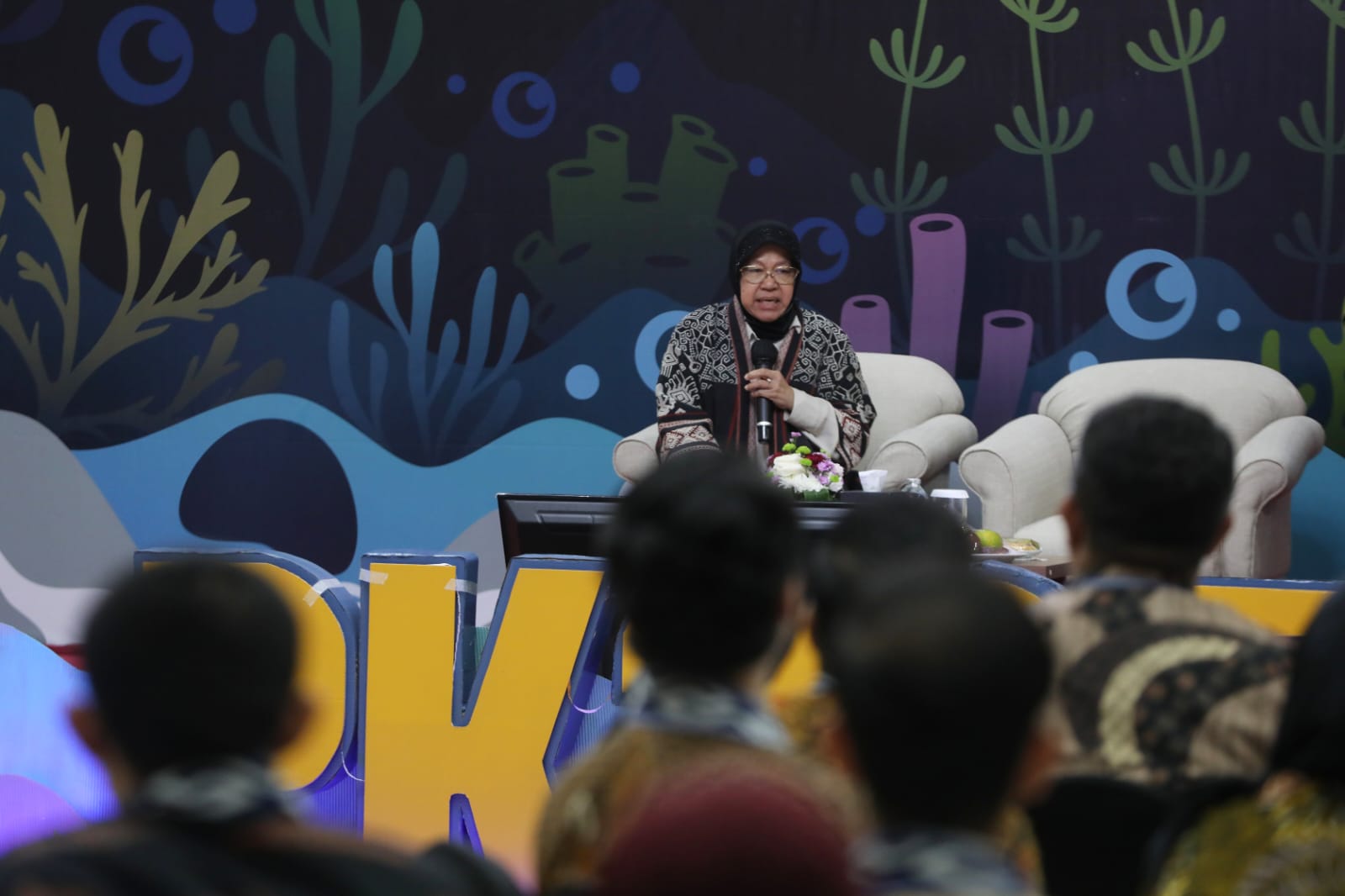MoSA Has Quickly Followed Up the Finding from Supreme Audit Agency

JAKARTA (June 23, 2023) - Ministry of Social Affairs strongly committed to
distributing social assistance right on target, including ensuring the
follow-ups of every report indicated that the assistance distribution is not
right on target as found in Supreme Audit Agency’s newest report in Second
Semester Audit Report Overview (IHPS) of 2022.
Related to the report, Minister of Social Affairs,
Tri Rismaharini, ensures that Ministry of Social Affairs has followed up
institutionally before publishing the report. Supreme Audit Agency’s finding
consists of three parts, which are the establishment and distribution of Basic
Food Assistance Program, the establishment, and distribution of Family Hope
Program, and the establishment and distribution of Direct Cash Assistance for
the transfer of Fuel Oil Subsidies.
The Agency’s finding is an administrative one,
which is an improvement in social assistance distribution mechanism. For the
finding, Ministry of Social Affairs has submitted a follow-up document about
the first-semester monitoring of 2023 to gain status establishment from Supreme
Audit Agency.
“So, this is part of supervision process in
managing state finance. Starting when I lead the ministry, Ministry of Social
Affairs is very cooperative towards supervision mechanisms by related
institutions, including Supreme Audit Agency. I make sure that Ministry of
Social Affairs has submitted follow-up report as the Agency recommends,” said
Minister of Social Affairs in Jakarta on June 26.
As a real step in data improvement, Ministry of
Social Affairs takes a quick step related to 10.249 basic food
assistance/Non-Cash Food Assistance Program beneficiaries. Some of the beneficiaries
work as directors or certain officials in some companies. The information is a
detection result from Directorate General of Common Law Administration (Ditjen
AHU) of Coordinating Ministry of Law and Human Rights a few months ago.
In Ministry of Social Affairs’ database, Family
Beneficiaries are verified as poor with various statuses, such as cleaning
service, labors, etc. The Ministry freeze the data and removed it from
Integrated Social Welfare Data (DTKS). “We will cut them. If they complain later,
state that they are poor, they are welcome to file a complaint to us, and we
will evaluate the complaint,” said Minister of Social Affairs some time ago.
Corruption Eradication Commission (KPK) appreciated
Ministry of Social Affairs for the corruption prevention system reinforcement.
Prevention and Monitoring Deputy of Corruption Eradication Commission or
National Strategy of Corruption Prevention Executive Coordinator (Stranas PK),
Pahala Nainggolan gave Ministry of Social Affairs in top rank from 76 Ministry/Institution
having good action plan achievement of corruption prevention by utilizing
national identification number (NIK).
“We reward ministry that actively contributes and
responds to action plans. The action plan made by Ministry of Social Affairs is
utilizing National Identity Number,” Pahala said to the press not so long ago.
Local Government Role
Local government plays a key role in Integrated
Social Welfare Data (DTKS) improvement for the social assistance distribution
to be right on target. Laws Number 13 of 2011 on Poverty Reduction
Management set the role of local government in poverty data update.
“According to Law number 13 of 2011, the process is
started with village council or ward council and proceeds in stages to the
higher authority,” said Minister of Social Affairs. Local governments and the
officials until village/ward level holds full authority in deciding who
deserves to get social assistance and who’s not.
Referring to Law Number 13 of 2011 on Poverty Reduction
Management, updating data becomes city/regency government’s authority. This is
stated in clauses 8, 9, and 10 which in summary said updating data is a tiered
process mandated to city/regency government.
Such as in clause 8. It was stated that
verification and validation as mentioned in verse (4) are done by social
welfare potency and source located in a district, ward, or village.
“So, Ministry of Social Affairs doesn’t collect the
data directly. The ministry has to establish the data and the update is done by
regency/city government. Recently, I validate the data every month. We will
wait for the data from the regency/city in the first and second weeks. The
third week is for verification, and the fourth week is for validation. The
problem is there are still regency/city governments who are less or even
inactive in updating data,” Risma says.
Suggest and Rebut Feature
To encourage poverty data improvement and to
increase social assistance distribution accuracy, innovation is made by
activating “Suggest” and “Rebut” features in Cek Bansos Application.
Minister of Social Affairs thought that Suggest and
Rebut Feature activation is a breakthrough from data problem where there are
people who deserve to get assistance, yet they don’t get one (exclusion error),
and there are people who don’t deserve to get assistance, yet they get it
(inclusion error).
The public will be able to help control data updates by
using the feature. The public’s involvement can also accelerate updating
process. Thus, they will help run local government duty as mentioned in Laws
Number 13 of 2011.
 English
English
 Bahasa
Bahasa
